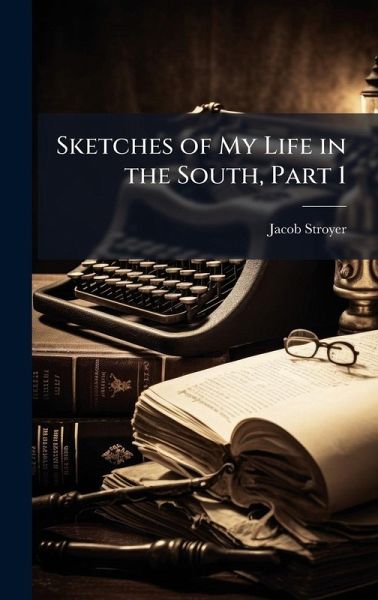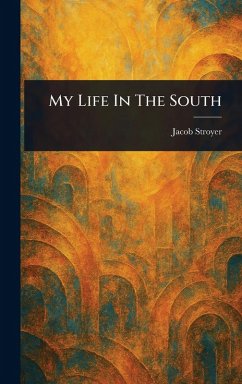
Sketches of My Life in the South, Part 1
Versandkostenfrei!
Versandfertig in über 4 Wochen
28,99 €
inkl. MwSt.
Weitere Ausgaben:

PAYBACK Punkte
14 °P sammeln!
In "Sketches of My Life in the South, Part 1," Jacob Stroyer recounts his experiences as an enslaved person in the antebellum South. This poignant narrative offers a firsthand account of the daily realities, struggles, and resilience of those living under the yoke of slavery. Stroyer's powerful prose vividly depicts the social and economic structures of the South, providing invaluable insights into a dark chapter of American history. Born into slavery, Stroyer's narrative provides a unique perspective on the institution, detailing his relationships with both fellow slaves and slaveholders. His...
In "Sketches of My Life in the South, Part 1," Jacob Stroyer recounts his experiences as an enslaved person in the antebellum South. This poignant narrative offers a firsthand account of the daily realities, struggles, and resilience of those living under the yoke of slavery. Stroyer's powerful prose vividly depicts the social and economic structures of the South, providing invaluable insights into a dark chapter of American history. Born into slavery, Stroyer's narrative provides a unique perspective on the institution, detailing his relationships with both fellow slaves and slaveholders. His recollections offer an intimate portrayal of family life, religious practices, and the constant threat of separation and violence. This autobiography serves as an important historical document, shedding light on the human dimensions of slavery and the enduring spirit of those who survived it. "Sketches of My Life in the South, Part 1" is a vital addition to the literature of the enslaved, offering an unflinching look at the past. This work has been selected by scholars as being culturally important, and is part of the knowledge base of civilization as we know it. This work was reproduced from the original artifact, and remains as true to the original work as possible. Therefore, you will see the original copyright references, library stamps (as most of these works have been housed in our most important libraries around the world), and other notations in the work. This work is in the public domain in the United States of America, and possibly other nations. Within the United States, you may freely copy and distribute this work, as no entity (individual or corporate) has a copyright on the body of the work. As a reproduction of a historical artifact, this work may contain missing or blurred pages, poor pictures, errant marks, etc. Scholars believe, and we concur, that this work is important enough to be preserved, reproduced, and made generally available to the public. We appreciate your support of the preservation process, and thank you for being an important part of keeping this knowledge alive and relevant.












